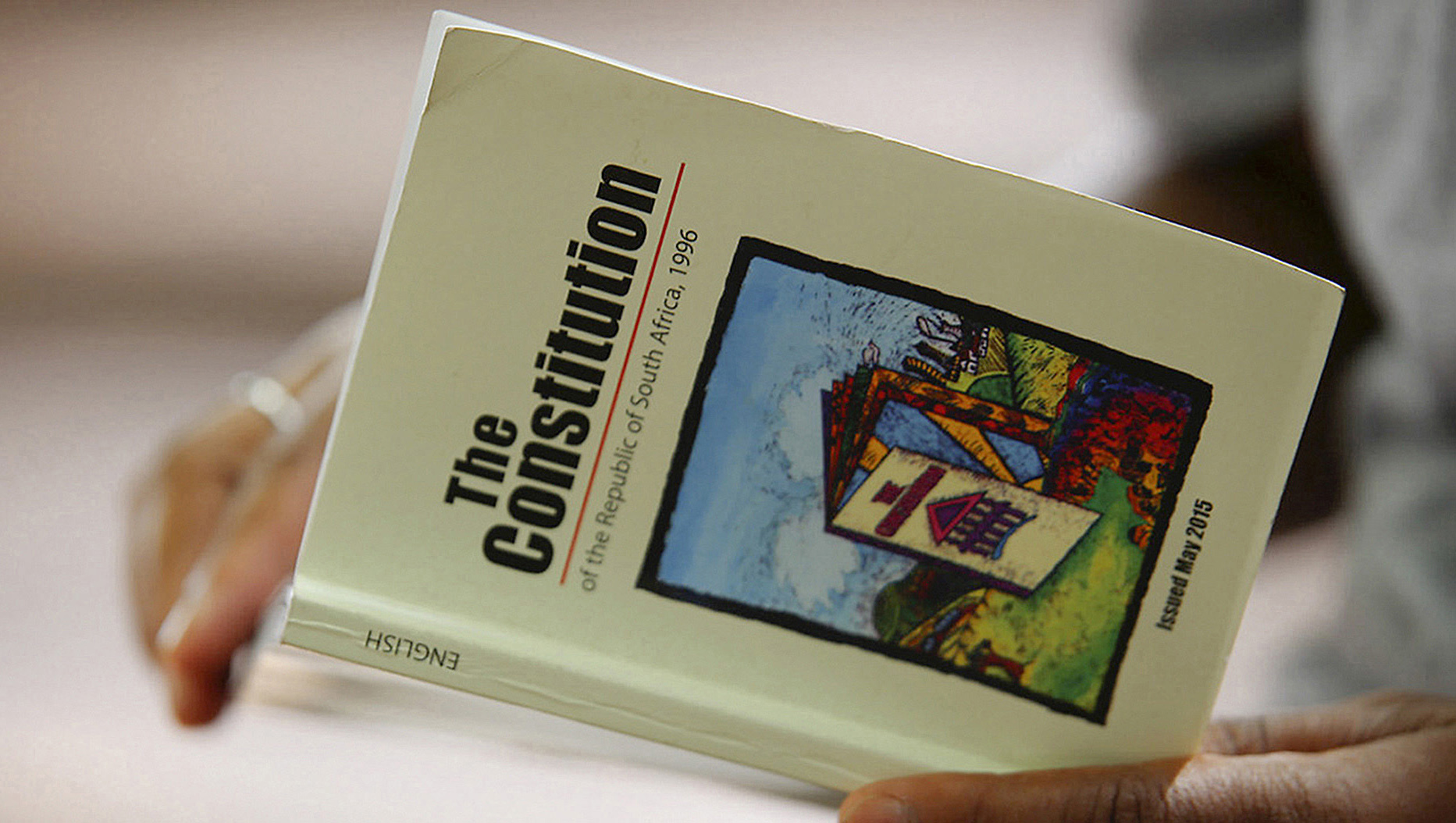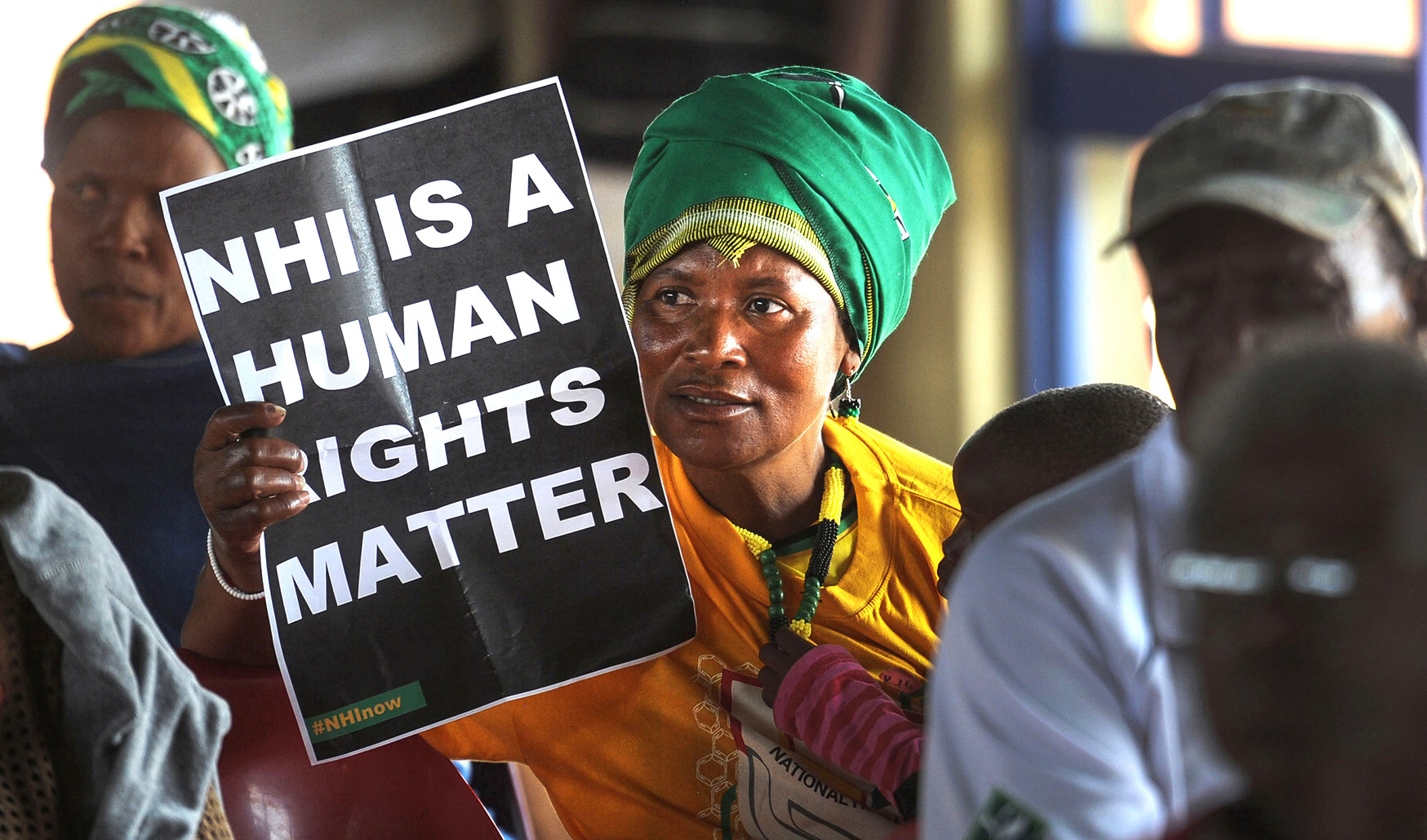The parliamentary portfolio committee on health heard oral presentations on the National Health Insurance Bill (the Bill) from 117 individuals, organisations and institutions. This information was collated by the Parliamentary Monitoring Group and analysed by researchers from the South African Medical Research Council, Clinton Health Access Initiative and the universities of the Western Cape and Cape Town.
Most agree the Bill has serious legal problems
With the exception of the African National Congress — which argued that it was “satisfied that the Bill is constitutional, having witnessed the rigorous evaluation of constitutional implications of its underlying policy when that was processed through the Cabinet” — there was a high level of concern among respondents around the constitutionality of the Bill.
Just over two-thirds (69%) of respondents were concerned, 27% were “silent” and 3% were not concerned.
The main concerns focused on the rights limited by a “single purchaser, single payer” model, the infringements with constitutional responsibility of provinces, the non-compliance with the “rule of law” principle, and the exclusion of care for migrants and refugees.
https://www.dailymaverick.co.za/article/2022-04-21-load-shedding-is-here-to-stay-for-at-least-another-year-while-the-government-dithers-on-policy/
Single purchaser and single payer model
The Bill designates the NHI fund as the “single purchaser and single payer” for healthcare services. The BHF and others said this “makes it unlawful for people to purchase healthcare services that are covered by NHI except in very limited circumstances”. This limitation infringes the Constitution in three ways: two related to the Bill of Rights (Chapter 2) and one in relation to the constitutionally mandated responsibility of provinces and other tiers of government.
Infringement of the Bill of Rights
 The Constitution clearly states in the Bill of Rights that access to healthcare is a basic human right. (Photo: health.usnews.com / Wikipedia)
The Constitution clearly states in the Bill of Rights that access to healthcare is a basic human right. (Photo: health.usnews.com / Wikipedia)
The Bill of Rights (Chapter 2) of the Constitution sets out the rights to which people in the country are entitled, and that the state is required to “respect, protect, promote and fulfil”. The Constitution does allow for these rights to be limited, but only if the grounds for limitation meet the “reasonable and justifiable” conditions set out in Limitation of Rights (Section 36) of the Constitution.
Right to access to healthcare services
Respondents argued that the single payer, single purchaser infringes on the right of everyone to have access to healthcare services as provided for in Section 27 of the Bill of Rights, that this limitation does not meet the “reasonable and justifiable” requirements as provided for in the Limitation of Rights (Section 36 of the Bill of Rights).
BHF argued that “if a person does not want to use an NHI-accredited healthcare provider to obtain services covered by NHI, he or she should have the option to obtain them elsewhere at his or her own expense”, and the limitation is, therefore “an infringement of their constitutional right of access to healthcare services, the right to dignity and the right to bodily and psychological integrity, which includes the right to security in and control over one’s body. It is also an infringement of the right to freedom of association”.
Mediclinic argued that Section 27 of the Bill of Rights imposes a “positive” obligation on the State to realise the right of access to healthcare within the State’s available resources and a negative obligation not to take steps that are retrogressive.
Given the high risk of the Bill not achieving its objectives, the State would then fail in its positive obligation, and if the Bill results in reduced access to healthcare services, the State would fail in its negative obligation as well.
They point to the ruling of the courts that it is an infringement of rights if a patient is limited to the public sector where required specialised care is only available in the private sector, and if people are prohibited from purchasing private medical insurance when the public health system is not able to provide adequate care within a reasonable time. The South African Medical Association agreed, saying “it would be unconstitutional to prevent patients accessing services they need which are supposed to be available through NHI but are not because of resource constraints etc.”.
The Democratic Alliance said the Limitation of Rights (Section 36) of the Constitution requires any limitation to be reasonable and justifiable in an “open society”. The main characteristics of an open society is “individual freedom or autonomy”. This Bill does not merely limit these freedoms, but in many respects takes it away and therefore does not meet the Limitation of Rights requirements.
The Professional Provident Society said the “limitation of citizens to purchase private healthcare will be globally unprecedented and open to constitutional challenge. Most developing countries with universal health cover allow for a dual system where citizens can pay taxes towards healthcare and then opt to pay for private healthcare should they wish”.
Bonitas felt restricting healthcare purchasing choices for those who can afford them was unconstitutional.
Right to choose trade, occupation or profession
 Healthcare providers cannot force the fund to accredit them or contract with them. Providers will be unable to practise their profession without accreditation. This is clearly unreasonable and a violation of the Section 22 right to practice a profession. (Photo: Leila Dougan)
Healthcare providers cannot force the fund to accredit them or contract with them. Providers will be unable to practise their profession without accreditation. This is clearly unreasonable and a violation of the Section 22 right to practice a profession. (Photo: Leila Dougan)
The single purchaser, single payer limitation also infringes the right of citizens to choose their trade, occupation or profession freely as provided for in Section 22 of the Bill of Rights.
BHF argued that “healthcare providers who are not accredited by, and do not contract with the fund, cannot be paid for their services by anyone”.
Healthcare providers cannot force the fund to accredit them or contract with them. Providers will be unable to practise their profession without accreditation. This is clearly unreasonable and a violation of the Section 22 right to practice a profession. The Constitutional Court has held that Section 22 embraces both the right to choose a profession and the right to practice the chosen profession.
The Democratic Alliance noted that medical practitioners subjected to the decision-making powers of the minister, would see their freedom to practice their profession limited or redefined to a point where their only remaining choice was whether to practice as healthcare practitioners or not. This is the abolition of choice and not merely a limitation of freedom of choice. Even if regarded only as a limitation, it would exceed the boundaries of valid limitation in Section 36 of the Bill of Rights.
Most recommendations dealing with this constitutional infringement centred around removing the single purchaser, single payer limitation in the Bill.
The National Planning Commission did not support the prohibition on continued medical aid cover for services rendered by the NHI.
The National Health Laboratory Services recommend that “the NHI Fund should also allow for duplicative health insurance i.e. everyone should be compelled to contribute to mandatory pre-payment. However, those who want to buy a similar package through voluntary insurance should be able to do so”.
Discovery Health recommended that Section 6(0) of the Bill should be “amended in order to preserve the rights of citizens to purchase any health service benefits through a voluntary medical insurance scheme, any other private health insurance scheme or out of pocket payments, as the case may be”.
Among others, the Cancer Association of South Africa, the South African Medical Association, South African Private Practitioners Forum and South African Society of Physiotherapy all felt there should not be restrictions on the choice of provider, and private health insurance should be permitted to offer voluntary comprehensive medical cover.
Infringement of provincial responsibilities
The single purchaser/payer provision of the Bill infringes on the constitutionally mandated responsibility of provinces and other tiers of government.
The BHF said the provision conflicts with the constitutional duty of provinces “to ensure the progressive realisation of the right of access to healthcare services” as the provision does not permit the provinces to purchase healthcare services.
The Democratic Alliance and the Western Cape government agreed that the Bill significantly reduced the scope of work and powers of the provinces as set out in the Constitution, the National Health Act and the PFMA.
The Dullah Omar Institute, MSD, Faculty of Science at UCT, South African Local Government Association, South African Medical Technology Industry Association, Stellenbosch University and Wits University expressed similar concerns and called for amendments to the Bill to allow for a continuation of the role of provinces and local governments.
Conflict with the rule of law
The language of the Bill creates uncertainty and that is contrary to the principle of the “rule of law”, a founding value of the Constitution.
The BHF pointed out that the rule of law requires that “legislation must be stated in a clear, accessible and reasonably precise manner, and that there must be a rational relationship between a scheme adopted by a legislature and the achievement of a legitimate government purpose”.
It then proceeds to argue that “... the NHI Bill is poorly drafted. It contains several internal contradictions, shows a poor understanding of the legal principles of legislative drafting and a lack of insight into how language must be used when writing law.
“It conflates policy principles with legal principles, which causes uncertainty to creep in when reading the Bill. There is no recognition that one cannot write all policy into legislation. Some policy should remain just policy.
“This makes understanding the bill difficult and confusing at times.”
MSD similarly argues that the “Rule of Law, enshrined in the Constitution, demands that the NHI Bill must be specific to create certainty and ensure accountability”.
Asylum seekers and migrants
 The Independent Community Pharmacist Association and Lawyers for Human Rights said the health of the nation was influenced by the health of all within the country. The exclusion of any of SA inhabitants would be counterproductive, fuelling the spread of disease and adding to the burden of disease. (Photo: Rosetta Msimango / Spotlight)
The Independent Community Pharmacist Association and Lawyers for Human Rights said the health of the nation was influenced by the health of all within the country. The exclusion of any of SA inhabitants would be counterproductive, fuelling the spread of disease and adding to the burden of disease. (Photo: Rosetta Msimango / Spotlight)
Exclusion of asylum seekers and migrants from NHI benefits was considered unconstitutional and counterproductive.
The Democratic Alliance cited Section 7 of the Bill of Rights, which states that the Bill of Rights applies to “all people in our country”, and Section 27, which allows for “everyone” to have the right to access healthcare (and does not exclude persons on the grounds of their status as asylum seekers).
The Scalabrini Centre pointed out that the Bill places South Africa at risk of violating the non-refoulement principle if asylum seekers are forced to leave because of failure to access healthcare.
The Independent Community Pharmacist Association and Lawyers for Human Rights said the health of the nation was influenced by the health of all within the country. The exclusion of any of SA inhabitants would be counterproductive, fuelling the spread of disease and adding to the burden of disease.
Among others, the Active Citizens Movement, Children’s Institute at the University of Cape Town, Rural Rehab of South Africa, South African Nursing Council, South African Committee of Medical Deans, and South African Human Rights Council called for the removal of these limitations, the adoption of a clear principle of non-discrimination in the application of NHI and the inclusion of asylum seekers, undocumented migrants, students and all children as beneficiaries.
Conclusion
The contestation evident in these presentations on constitutional rights and responsibilities has revealed several substantial shortcomings that have the potential to stop or seriously delay the path to implementation.
The PCH would need to deliberate on whether the concerns raised carry a high risk of constitutional challenge which could result in a lengthy delay.
If the risk is deemed to be low, the PCH can proceed without addressing the substantive concerns.
However, if the risks are deemed to be high, then PCH would have to consider amending the Bill to address or remove the constitutionally problematic components of the Bill to mitigate the risk of legal challenge. DM/MC
See part 1, part 2 and part 3.
Geetesh Solanki is Specialist Scientist at the Health Systems Research Unit, SA Medical Research Council (SAMRC); an Honorary Research Associate in the Health Economics Unit, University of Cape Town and Principal Consultant at NMG Consultants and Actuaries; Neil Myburgh is Professor in the Department of Community Dentistry, Faculty of Dentistry and WHO Collaborating Centre for Oral Health, UWC. Stephanie Wild is a postgraduate student enrolled for a MPhil in Public Law at the University of Cape Town; Judith Cornell is former Director of Institutional Development and Planning at the Nelson Mandela School of Public Governance, University of Cape Town; Vishal Brijlal is a Senior Director at the Clinton Health Access Initiative.
The opinions expressed are those of the authors and do not necessarily reflect the views of their institutions.




 (Photo: Rosetta Msimango / Spotlight)
(Photo: Rosetta Msimango / Spotlight)